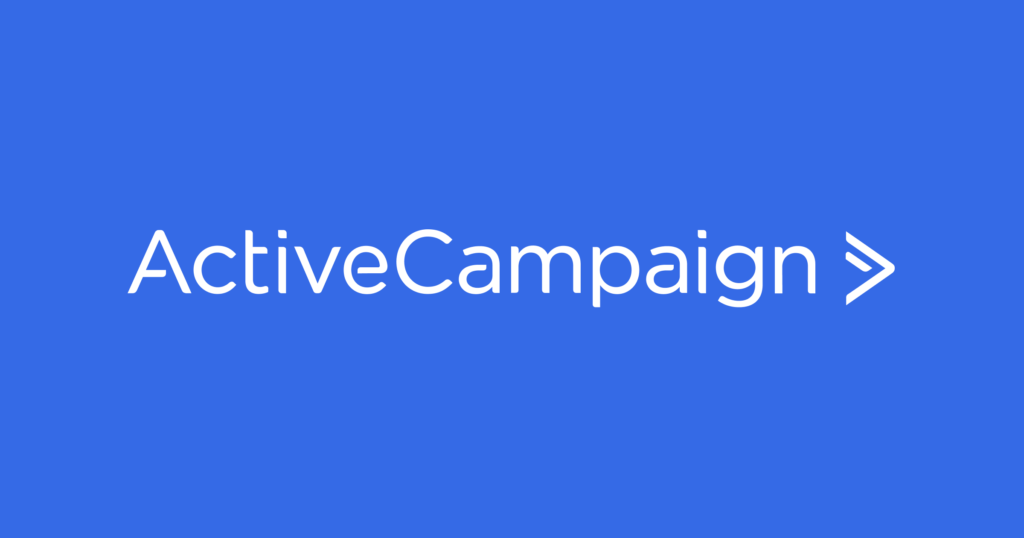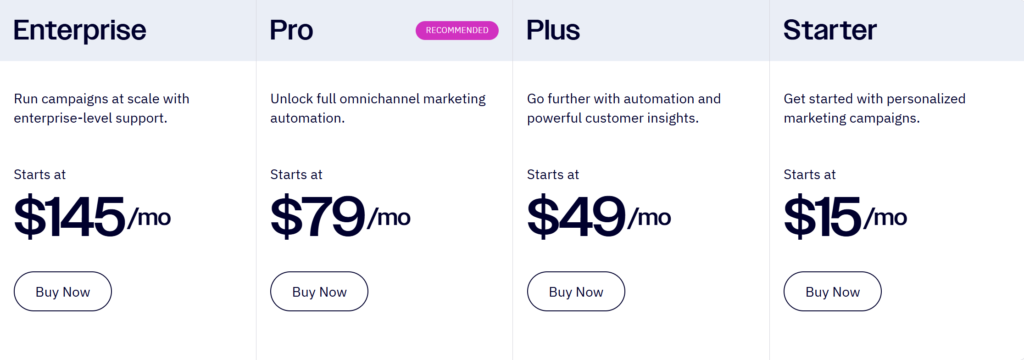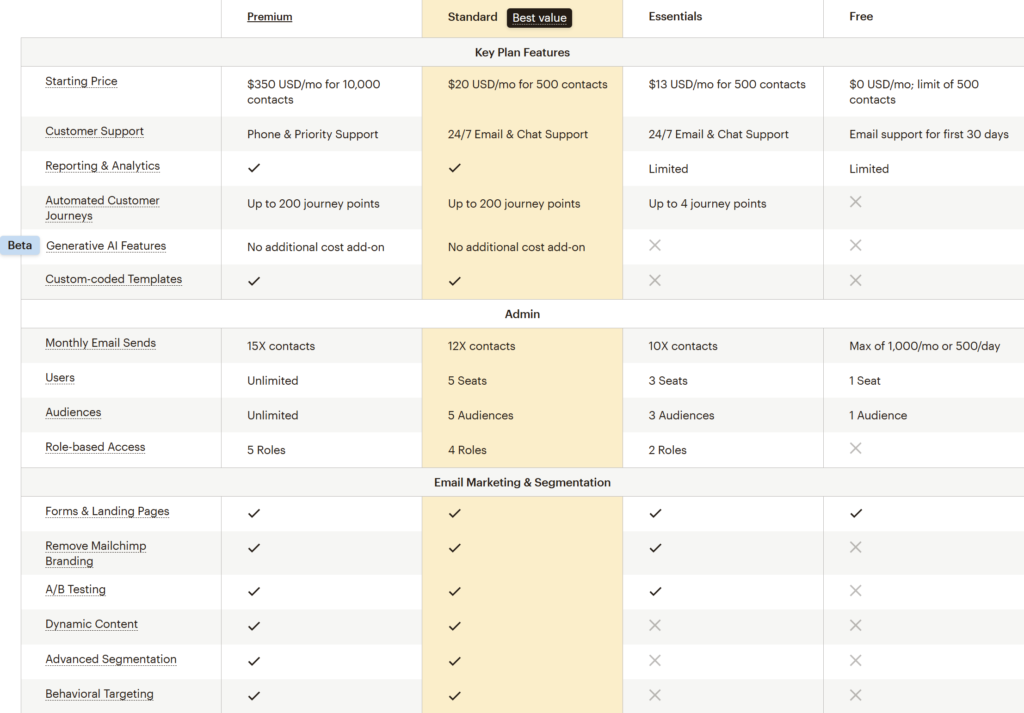Choosing the right email marketing platform can make or break your campaign’s success. Among the most popular options, ActiveCampaign and Mailchimp stand out. But which one is easier to use? Let’s dive deep into each platform, examining their features, ease of use, pricing, pros, and cons to help you decide.

What is ActiveCampaign?
ActiveCampaign is an all-in-one marketing platform designed to help businesses automate and personalize customer interactions across various channels, including email, SMS, and web. It combines email marketing, marketing automation, CRM, and support tools to create a seamless customer experience.
Key Features
- Email Marketing: Create and send personalized emails to your audience with advanced automation capabilities.
- Marketing Automation: Automate your marketing campaigns based on user behavior and interactions.
- CRM: Manage customer relationships and track interactions to improve customer service.
- SMS Marketing: Send text messages to engage with your audience directly on their mobile devices.
- Analytics and Reporting: Gain insights into your campaigns’ performance with detailed analytics and reporting tools.
- Split Testing: Test different versions of your emails to see which performs better.
- Contact Migration: Easily import contacts from other platforms.
Ease of Use:
ActiveCampaign offers a modern interface, but its feature-rich environment can be overwhelming for beginners. The automation builder is powerful yet requires some learning to master. The platform is more suitable for those with intermediate to advanced marketing experience.
PROS
- Advanced Automation: Offers industry-leading automation features that help create personalized customer experiences.
- High Deliverability Rate: Ensures your emails reach the inbox, not the spam folder.
- Detailed Analytics: Provides in-depth performance insights to help you optimize your campaigns.
- Unlimited Email Sends: All plans include unlimited email sends for up to 250,000 contacts.
- Free Contact Migration: Helps you transfer contacts from other platforms without hassle.
CONS
- No Free Plan: ActiveCampaign doesn’t offer a free plan, which might be a drawback for small businesses or those just starting out.
- Limited Integrations: The entry-level plan offers very few integrations compared to other platforms.
- Basic Templates: The design templates are fairly basic and might not be suitable for all businesses.
- No Built-in Stock Image Library: You’ll need to source your own images for campaigns.
Pricing:
- Starter: Starts at $15/mo
- Plus: Starts at $49/mo.
- Pro: Starts at $79/mo.
- Enterprise: Starts at $145/mo.

Recommendations
ActiveCampaign is a great choice for businesses with large email lists and those looking for advanced automation features. It’s particularly useful for small to mid-sized businesses that want to create personalized customer experiences and improve their marketing efficiency.
Use Cases
- E-commerce: Automate abandoned cart emails and follow-up sequences to recover lost sales.
- SaaS Companies: Send targeted onboarding emails and nurture leads through the sales funnel.
- Non-profits: Engage with donors and volunteers through personalized email campaigns.
- Service-based Businesses: Automate appointment reminders and follow-up emails to improve customer retention.
Overall, ActiveCampaign is a powerful tool for businesses looking to streamline their marketing efforts and create meaningful customer interactions. If you have a large email list and need advanced automation features, it’s definitely worth considering.

What is Mailchimp?
Mailchimp is a popular all-in-one marketing platform that helps businesses create and manage email marketing campaigns, automate marketing tasks, and build customer relationships. It’s known for its user-friendly interface and a wide range of features that cater to businesses of all sizes.
Key Features
- Email Marketing: Create and send personalized emails to your audience with customizable templates.
- Marketing Automation: Automate your marketing campaigns based on user behavior and interactions.
- CRM: Manage customer relationships and track interactions to improve customer service.
- SMS Marketing: Send text messages to engage with your audience directly on their mobile devices.
- Analytics and Reporting: Gain insights into your campaigns’ performance with detailed analytics and reporting tools.
- Split Testing: Test different versions of your emails to see which performs better.
- Contact Migration: Easily import contacts from other platforms.
Ease of Use:
Mailchimp’s interface is intuitive and beginner-friendly, making it ideal for users with no prior email marketing experience. The drag-and-drop editor simplifies email creation, while the platform’s onboarding process guides new users effectively.
PROS
- User-Friendly Interface: Easy to navigate and use, even for beginners.
- Free Plan: Offers a free plan for up to 1,000 email sends per month, which is great for small businesses and personal use.
- Advanced Automation: Offers robust automation features to help create personalized customer experiences.
- Built-in Tools: Includes tools like surveys, landing pages, and e-commerce integrations.
- High Deliverability Rate: Ensures your emails reach the inbox, not the spam folder.
CONS
- Limited Free Plan: The free plan has limitations on the number of contacts and email sends.
- Cost for Larger Lists: Can become expensive for businesses with large contact lists.
- Basic Templates: Some users find the design templates to be basic and may require customization.
- Branding: The free plan includes Mailchimp branding on emails, which might not be suitable for all businesses.
Pricing:
- Free: $0/mo for up to 500 contacts.
- Essentials: Starts at $13/mo for 500 contacts.
- Standard: Starts at $20/mo for 500 contacts.
- Premium: $350/mo for 10,000 contacts.

Recommendations
Mailchimp is a great choice for small businesses and personal use, especially if you’re looking for an easy-to-use platform with a free plan. It’s also suitable for businesses that need advanced automation features and built-in tools like surveys and landing pages.
Use Cases
- Small Businesses: Create and send email newsletters, promotional offers, and event invitations.
- E-commerce: Automate abandoned cart emails and follow-up sequences to recover lost sales.
- Non-profits: Engage with donors and volunteers through personalized email campaigns.
- Service-based Businesses: Automate appointment reminders and follow-up emails to improve customer retention.
Overall, Mailchimp is a powerful tool for businesses looking to streamline their marketing efforts and create meaningful customer interactions. If you’re new to email marketing or have a small contact list, it’s definitely worth considering.
Comparison: ActiveCampaign vs Mailchimp
| Feature | ActiveCampaign | Mailchimp |
|---|---|---|
| Ease of Use | Moderate | High |
| Automation | Advanced | Basic |
| Templates | Customizable | Pre-designed |
| CRM Integration | Built-in CRM | Limited |
| Best For | Scaling businesses | Beginners and SMBs |
| Starting Price | $15/mo | $0/mo |
Final Verdict: Which One’s Easier to Use?
Mailchimp takes the crown for ease of use. Its drag-and-drop editor, beginner-friendly design, and straightforward onboarding make it a clear choice for users just starting with email marketing. If you’re a small business or a freelancer looking for an affordable, simple platform, Mailchimp is the way to go.
On the other hand, ActiveCampaign is perfect for users who need more robust features. While it’s not as easy to use as Mailchimp, the steep learning curve pays off with powerful automation and CRM capabilities. If you’re a growing business or need complex workflows, ActiveCampaign is worth the investment.
When to Choose Mailchimp:
- You’re a beginner.
- You’re working with a limited budget.
- You need basic automation and email marketing tools.
When to Choose ActiveCampaign:
- You require advanced automation and CRM features.
- You’re scaling your business and need a versatile platform.
- You want detailed segmentation and reporting.
Ultimately, the choice depends on your business needs and technical expertise. Both platforms have free trials, so take them for a test run to see which one feels right for you.




